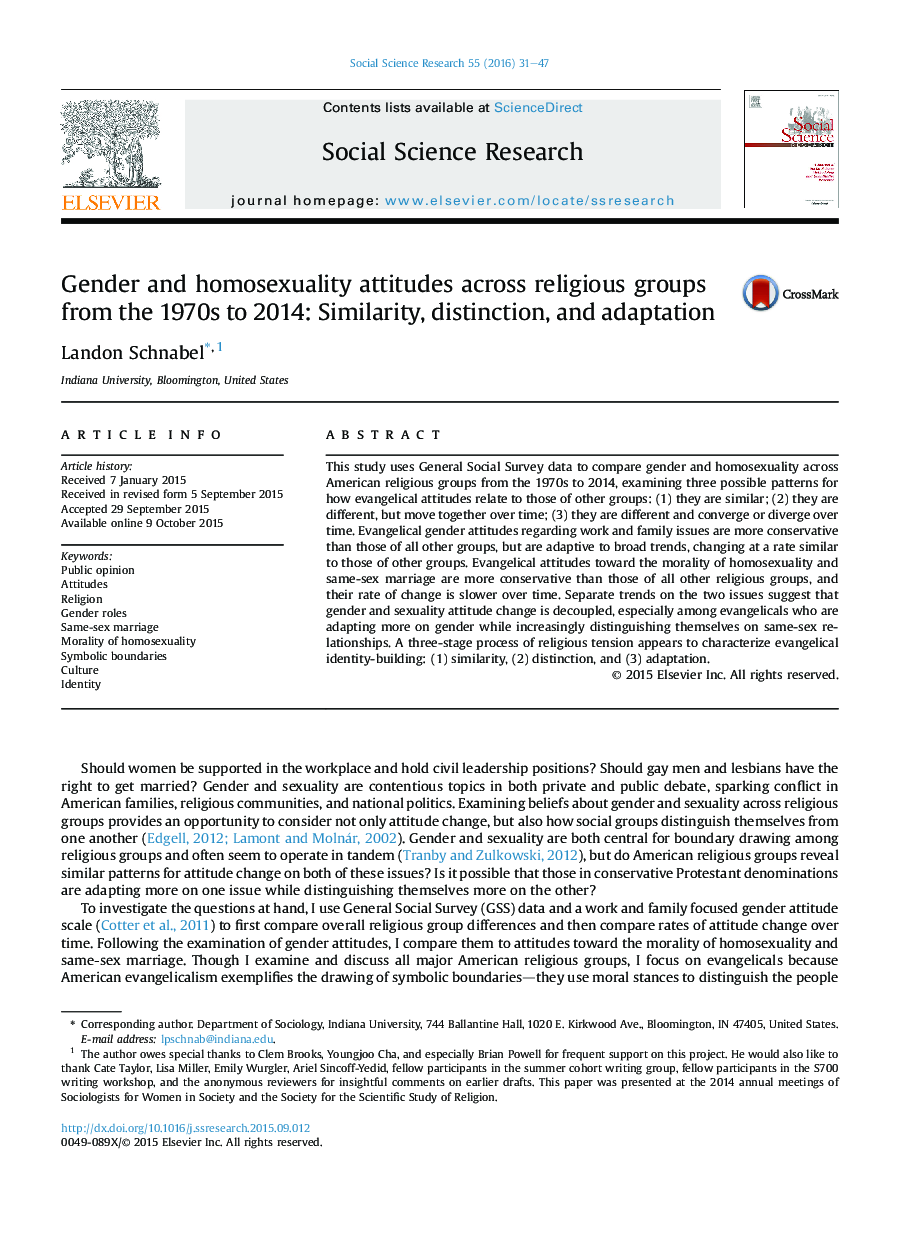| Article ID | Journal | Published Year | Pages | File Type |
|---|---|---|---|---|
| 955597 | Social Science Research | 2016 | 17 Pages |
•American gender and homosexuality attitudes change in different and decoupled ways.•Gender role attitudes are changing at similar rates across religious groups.•Attitudes toward same-sex marriage and morality are lagging among evangelicals.•Gender roles were more central to religious distinction, but now sexuality is.•Evangelical attitudes follow a pattern of similarity, distinction, and adaptation.
This study uses General Social Survey data to compare gender and homosexuality across American religious groups from the 1970s to 2014, examining three possible patterns for how evangelical attitudes relate to those of other groups: (1) they are similar; (2) they are different, but move together over time; (3) they are different and converge or diverge over time. Evangelical gender attitudes regarding work and family issues are more conservative than those of all other groups, but are adaptive to broad trends, changing at a rate similar to those of other groups. Evangelical attitudes toward the morality of homosexuality and same-sex marriage are more conservative than those of all other religious groups, and their rate of change is slower over time. Separate trends on the two issues suggest that gender and sexuality attitude change is decoupled, especially among evangelicals who are adapting more on gender while increasingly distinguishing themselves on same-sex relationships. A three-stage process of religious tension appears to characterize evangelical identity-building: (1) similarity, (2) distinction, and (3) adaptation.
